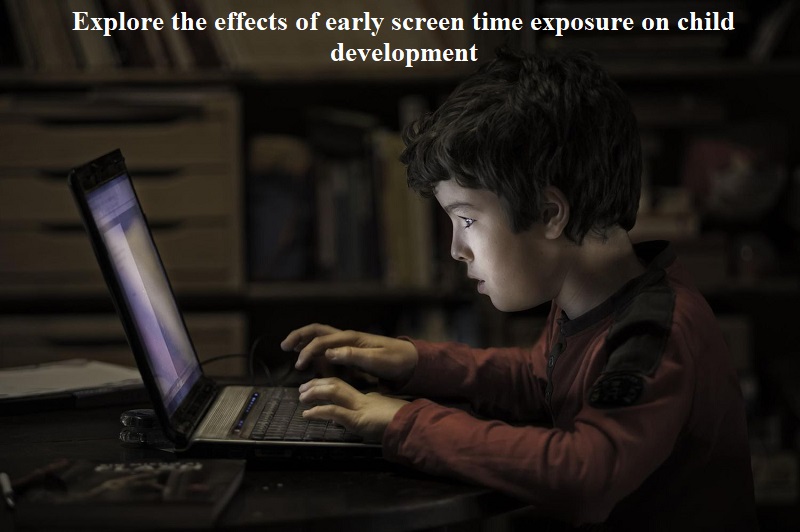
In today’s technology-driven world, young children are exposed to digital screens from an early age, including smartphones, tablets, computers, and televisions. While technology offers various benefits and learning opportunities, there are growing concerns about the potential impact of excessive screen time on child development.
Let’s delve into the effects of early screen time exposure on child development, exploring different aspects that parents, educators, and caregivers should be aware of.
During the early years, children’s brains are rapidly developing, making the influence of screen time crucial. Excessive screen use may affect their physical, cognitive, emotional, and social development.
Sonali Sarkar, a renowned mom blogger certified in child nutrition and child care, shared insights on key areas where screen time can have an impact:
Cognitive development and learning abilities: Interactive and educational apps can enhance cognitive abilities, but excessive screen time may hinder attention span and memory retention.
Language and communication skills: Excessive screen time may reduce face-to-face communication opportunities, potentially affecting language development and emotional expression.
Physical health and well-being: Prolonged screen time can lead to sedentary behavior and contribute to obesity and other health issues. Balancing screen time with physical activities is crucial for a healthy lifestyle.
Sleep patterns and quality: Exposure to screens before bedtime can disrupt sleep patterns and quality, leading to sleep deprivation and associated behavioral issues.
Social and emotional development: Excessive screen time might hinder the development of empathy, emotional regulation, and recognition of social cues.
Parent-child bonding: Excessive screen use may reduce quality time spent together, impacting parent-child bonding.
Aggressive behavior and exposure to violence: Studies suggest that exposure to violent content on screens can increase aggressive behavior in children.
Attention and hyperactivity: Excessive screen time can contribute to attention problems and hyperactivity in children.
Digital addiction and withdrawal symptoms: Early exposure to screens may lead to digital addiction and withdrawal symptoms when separated from devices.
Self-regulation and impulse control: Instant gratification from screens may hinder a child’s ability to self-regulate and control impulses.
To mitigate potential negative effects, it’s essential to establish healthy screen time habits:
Set screen time limits based on age.
Promote active play and outdoor activities.
Create screen-free zones in the house.
Engage in co-viewing and co-playing with children.
Choose age-appropriate and educational content.
Opt for slow-paced shows to reduce addictive tendencies.
Avoid screens before bedtime.
Encourage face-to-face interactions with family and peers.
Demonstrate positive screen time habits as a role model.
The impact of early screen time exposure on child development is a matter of growing concern. While technology can be beneficial, excessive screen time should be balanced with other activities. By adopting healthy screen time practices and fostering face-to-face interactions, parents and caregivers can ensure a well-rounded approach to screen usage and promote healthy growth and development in children. It’s essential to stay informed and use technology responsibly to support children’s overall well-being.

Post Your Comments